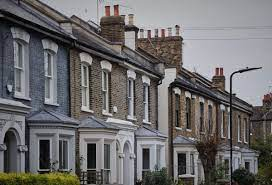Most people ask their chosen conveyancer how long the process will take and how much it will cost, but there are a number of other questions that may be bothering you but that you are worried about asking.
Buying A Home
Buying a home is one of the biggest financial commitments that most people ever make, so it is important to get it right. There are no stupid questions in conveyancing and firms such as Sam Conveyancing are always happy to answer any questions on the process and its many elements.
1. Why do I need to provide identification?
Conveyancers regularly handle large amounts of money and are required to comply with Money Laundering Regulations, which includes assuring themselves that their clients are who they say that they are. They do this by examining photo ID such as passports or driving licences and proof of address, such as a recent utility bill.
They are also required to ask for evidence that you have legally acquired the funds that you intend to use to purchase your chosen property.
By following these steps, both the buyer(s) and the conveyancer are protected against mortgage fraud and money laundering. It is important to note that these steps must be taken, even if it has been agreed with the mortgage company that the property will be held in a deed of trust.
2. Do I need to pay for a survey?
Home buyers who are looking to save money often ask whether they need to pay for a survey. Whilst it is not usually mandated, some mortgage lenders may require evidence that the property has been inspected by an independent expert before they are willing to use it as security against a mortgage.
There are different levels of survey and even the most expensive structural survey usually offers good long-term value for money, protecting the buyer against significant unplanned costs in the future. Your conveyancer may be able to recommend a good local surveyor for you.
A survey is different to the searches carried out by your conveyancer. Searches are mandatory if you are purchasing with a mortgage and will check whether the property you wish to buy is affected by any developments or restrictions in the local area. This includes checking whether there are planning proposals submitted for building developments in the nearby area that could affect your outlook or property price in the future.
After The Sale Is Completed
Once the sale has completed, buyers often still have questions for their conveyancer, and one of the the most common is:
3. What evidence exists that the house is mine?
Knowing that you are the legal owner of a property is essential for peace of mind, especially since you no longer receive paper deeds. The legal documents associated with the title are held electronically by the Land Registry but you will receive some paperwork that you will need to look after as it will be needed for any future sale.
Your chosen conveyancer will be very happy to answer your questions and the feeling that you get in your initial discussions with them will help to reassure you that you have chosen the right person or firm to progress your property purchase.


